
Welcome
I started this blog in 2013 to share my reflections on reading, writing and psychology, along with my journey to become a published novelist. I soon graduated to about twenty book reviews a month and a weekly 99-word story. Ten years later, I've transferred my writing / publication updates to my new website but will continue here with occasional reviews and flash fiction pieces, and maybe the odd personal post.
 It’s 2008, and the financial crisis signals the death throes of New Labour; what’s the millionaire head of a publishing dynasty to do, but throw a party? Sherard Howe’s proclivity to entertain enables author Tim Glencross to assemble a wide cast of characters under one roof whose love and work trajectories the reader follows over the ensuing three years. While Philip Devereux, partner at a prestigious law firm that “advised the banks while they were getting into a mess, and now … [advises] them on how to finish themselves off” (p143), commissions his former fag (a word whose meaning I did know, but wish I didn’t), Sherard to curate a modern art exhibition on the theme of the crisis, fittingly entitled Turmoil, and the minister, Alec Merton, escapes a tedious family Christmas to defend the government to the news media, Sherard’s wife, the feminist philosopher Daphne Depree, is having second thoughts about the pending publication of her book, The Prodigal Sister, a “virtuosic deconstruction of third-way politics” (p121).
6 Comments
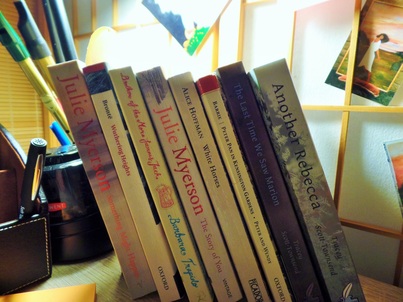 I’m delighted to host a post from my Inspired Quill stablemate. Tracey’s second novel was published earlier this month. Enduring love. Loss. The eternal struggle for life’s meaning. The hand that first held mine. Atonement. Yes, there are book titles mixed up in there, but these are also the themes of my writing. My influences probably started with Peter Pan in Kensington Gardens, maybe that’s the first memory I have of a deep feeling of poignancy: an understanding of irretrievable loss. Peter wants to fly free for a while, as all babies (according to J.M. Barrie) are capable of, but he leaves it too late to return to his mother. The window is barred and she has another baby; there is no place now for him. He spends his life as an eternal boy, living in Neverland, regretting his loss of ‘Mother’. A book that impacted deeply on me as an older child was A Dream in The House. Every generation of a family has a set of twins named Ann and Jane, and the Ann always disappears and the Jane tries to get her back. Once the final Jane manages to retrieve her twin, every other Ann is also restored in retrospect. Loss of ‘Self’, perhaps, in the symbolisation of the twin.  Sorting through the effects of her beloved grandmother, Mariam, shortly after her death, British journalist, Katerina Knight, discovers a wooden spice box containing a journal and stack of handwritten letters. The documents are written in Armenian, a language which neither Katerina nor her mother understands but, on holiday in Cyprus, Katerina meets a handsome young man who offers to translate them. Mariam’s scribbles tell of relatives lost to slaughter and exile in the 1915 Armenian genocide, of a fortuitous rescue by an English couple and a country childhood ending with another lost love. Meanwhile, Gabriel, an elderly Armenian living in Nicosia, exiled a second time with the partitioning of Cyprus into Greek and Turkish sectors, is bemoaning his granddaughter’s engagement to a man from outside the community, perceiving it as a betrayal of her origins, as cultural genocide, although one of his drinking friends advises tolerance (p175-6): ‘Let go of the past, my friend. All that stored up resentment isn’t good for the soul.’ ‘The past is not like water in a toilet bowl. It can’t be flushed away. It’s a septic tank growing more rancid by the day.’ The reader discovers before he does Gabriel’s link to Mariam and Katerina, and from that point the novel is driven by the question of whether these characters will finally connect. 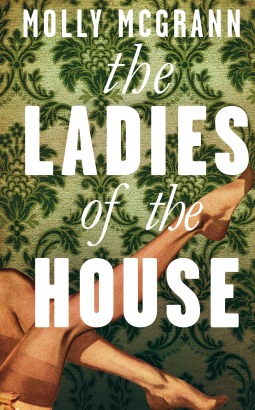 Marie Gillies has always feared – and hated and loved – her father and has lived a limited life according to his rules. But now he’s dead she wants to take her mother, Flavia, on holiday to her native Italy, and that requires a meeting with the solicitor who manages the trust fund from her father’s estate. Arthur Gillies, coming home from London only at weekends, had been in business; neither Marie nor her mother had needed to concern themselves with what type. But it turns out he’s had a portfolio of expensive properties in the capital, and Marie decides she’d like to get her hands on some of his dosh. Rita is an ageing sex-worker tottering out, despite being prone to falls, in high heels to find a new man to pay the bills. Now with her own small flat, she makes daily visits to the dilapidated house in Primrose Hill where she used to work, to check up on its remaining occupants: Joseph, the son of Sal, the brothel’s deceased madam, who spends his days riding the buses, and Annetta, a former colleague, prone to fugue states since childhood and now suffering from dementia, who regularly escapes from her locked bedroom to shed her clothes in the park. 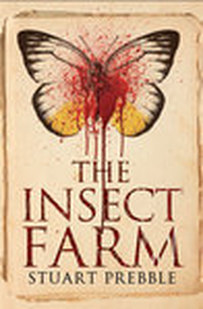 When his parents die in a house fire, Jonathan Maguire decides to give up his studies at Newcastle University and move back to London to live with his brother. Six years older but with the mind of an eight-year-old, Roger has little understanding of the workings of the social world, but is an expert on the community of insects he breeds in glass-fronted cages in a garden shed. Despite their age difference, the boys were extremely close as children and Jonathan is determined to do the right thing by his brother, but his loyalty comes at a cost. Not only does he give up his degree, but it means separation from his girlfriend, Harriet, a talented flautist much admired by young men. Their marriage, just before Harriet returns to university after the summer break, does little to assuage Jonathan’s suspiciousness and jealousy, especially when she is the only woman in a classical quartet that includes his nemesis, Brendan Harcourt, who has never attempted to hide his attraction to Harriet. With Harriet’s support, and the occasional fiery confrontation, Jonathan seems to be learning to manage his emotions, when Roger reveals witnessing an illicit kiss after a performance by the quartet. 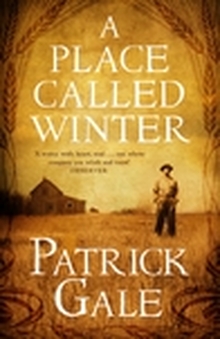 Patrick Gale’s wonderful sixteenth novel opens with a disturbing bathroom scene. Incarcerated in a mental asylum, Harry is manhandled by a couple of attendants into a hot bath where he’ll be held immobile for hours, ostensibly to calm him; whether it could, when I was having palpitations merely reading about it, seemed unlikely. A relief then, to move with Harry a few pages later to a more benign institution, a therapeutic community by the river. Yet he remains haunted by a previous trauma: These memories lay in rooms he couldn’t enter. In the quiet moments of lucidity between baths, he had approached them close enough to sense they were wrapped in a grief so powerful that even to put his hand on the doorknobs would fry his skin. (p11) Moving back and forth in place and time, between his convalescence in the community and a life that has taken him from upper-middle-class England to the newly colonised Canadian prairies in the early years of the twentieth century, the doors to those troubling memories are gradually opened to us. 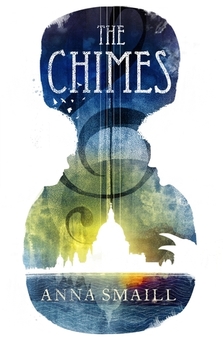 Have you ever walked into a room and forgotten what you came for and had to retrace your steps until you know? Have you ever forgotten something you were sure you’d remember and ended up repeating the self-same mistake you’d made the last time? Do you bring back souvenirs from holidays; do you treasure pictures, ornaments and other miscellany, not for their monetary value, but for the memory of how they came your way? Have you ever been touched by music in a place where words hardly signify? Have you ever been affected by a sound so loud you hear it, not just in your ears, but in your entire being? If your answer to any of these questions is yes – and I’d be surprised if it isn’t – you’ll connect with the themes in Anna Smaill’s exceptional debut novel, but you might need to hold onto these ideas to see you through the disorientating opening chapters. The plot is a classic quest: two young men gradually uncover the tangle of lies perpetrated by the elite of their country and set off to infiltrate the seat of power and destroy the source of their destitution, risking their lives in the liberation struggle. It’s a straightforward plot, but deployed with sophistication; there’s no simple demarcation between good and bad. Reaching the hallowed halls, Simon, the narrator wonders (p273): But what did we have to offer her in return, next to this beauty? the voice in my head says. No answers, no order. Nothing but mess, questions, fear. 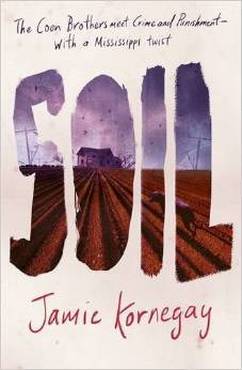 Jay Mize thought he’d be at the forefront of a revolution in agriculture, when he moved with his wife, Sandy, and six-year-old son, Jacob, to a stretch of river-bottom farmland in the Mississippi hills. But a summer of drought followed by incessant rain has ruined him. After his father’s suicide, Jay becomes obsessed with doomsday scenarios. In order to protect their son from his increasing negativity, Sandy moves out (p168): I cannot believe that I’m arguing with you about the end of the world. I cannot live this way, thinking like this. Every day that you harp on this gloom and doom is another day you miss the blessed life you have here, right now, this instant. When Jay discovers a corpse on his flooded fields, his sanity gradually leaches away. Watched by a vengeful woodsman and the playboy deputy sheriff, Danny Shoals, Jay is heading towards an apocalypse partly of his own making. 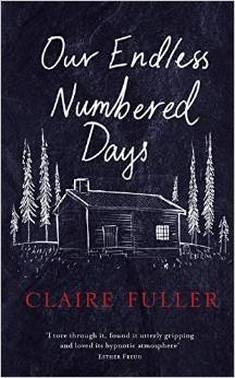 The daughter of a German concert pianist and her (one-time stand-in page-turner) younger husband, Peggy Hillcoat is eight in the hot summer of 1976 when her father tells her to pack her rucksack and come with him on a journey. As they travel across Europe by car, train and, latterly, on foot, Peggy is less and less confident that this is a holiday. But the stories her father has told her about the secret cabin in the forest spurs her on, and even when she loses her shoe on a perilous river crossing she doesn’t completely give up hope. Yet when they finally reach the cabin, even her father is disappointed at its dilapidated state. Peggy is ready to return home until her father tells her that, not only is her mother dead, but the rest of the world beyond the river is no more. Nine years later, Peggy is back with her mother in London, struggling to adapt to a world of overwhelming luxury and choice (p41): Awaiting the Grim Reaper: The Love Song of Miss Queenie Hennessy and The A-Z of You and Me12/3/2015 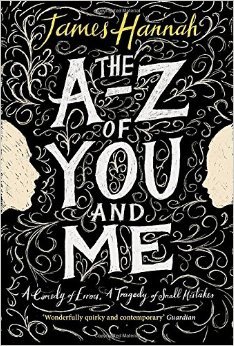 Ivo lies in bed in a hospice, part of him, at only forty, unable to accept that he’s there. His favourite nurse, Sheila, suggests he play a game to keep his mind occupied: composing an A-Z of body parts, each linked to a tale about his life. He addresses these to an initially unnamed other – using as a form of the second-person point of view I’ve discussed in a previous post – who turns out to be his girlfriend, Mia, now sorely missed. Ivo was born into a loving family but, after his father died when he was only six, he’s always had difficulty avoiding the influence of the wrong kind of friends. An insulin-dependent diabetic from his late teens, like some other young people with the condition, he doesn’t always attend sufficiently to his self-care. On top of this, there’s Malachy, his best friend from school and his elder sister’s partner, tempting him to sample a cornucopia of drug-fuelled highs. As Ivo’s condition worsens, and the hospice staff recommend morphine for the management of this pain, he becomes increasingly anxious about the prospect of a visit from Malachy from whom he’s become estranged. 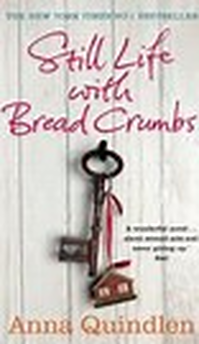 Struggling to pay the bills, the once-celebrated photographer Rebecca Winter rents out her stylish New York apartment and moves into a dilapidated cottage on the edge of a forest. Divorced from her dreadful husband, bearing the financial burden of her mother’s nursing home care and with a son still struggling to secure his footing on the career ladder, Rebecca feels worlds away from any significant support, as well as from the woman she used to be. Like Tess Lohan in Academy Street, Rebecca tries to make the best of things but, in the early chapters at least, she is beset by a sense of loss and loneliness (p67): with the peculiar empty feeling that she often had instead of sadness, as though her body knew that it was better to feel nothing at all rather than the something her mother’s playing and her father’s jollity and her fading bank balance evoked.  This time last year, I posted a review of How to Be a Heroine by Samantha Ellis, in which she shares her reflections on the novels that have shaped her life. Although I warmed to the way the author openheartedly shared her love of fiction, I did feel somewhat irritated by the limitations of these heroines’ heroism, so often linked to a romantic plotline. So, in honour of International Women’s Day 2015, let’s take a look at some fictional women who have been heroic in other ways. 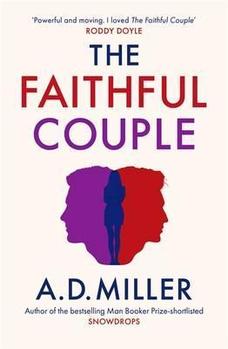 It’s 1993 when two young Englishmen meet up in a hostel in California and agree to spend the next couple of weeks travelling together. Handsome, upper-class Adam is fresh from university, while Neil, two years older in years but younger in confidence, has just been laid off from his dull job as a salesman for a pharmaceutical company. The pair bond over late-adolescent pranks, assuming false identities to chat up women and fleeing restaurants without paying their bills. On return to London, their friendship continues in a sporadic manner, revealed to the reader over the ensuing 18 years, as Neil gets progressively richer while Adam fails to achieve the promise of his gilded beginnings. Initially, The Faithful Couple seems a radical departure from AD Miller’s first novel, Snowdrops, about corruption in modern Russia, which was short-listed for the 2011 Man Booker prize. Marketed as the story of male friendship (although, from first glance at the title, I had it logged as a gay romance) and its limitations (p101): 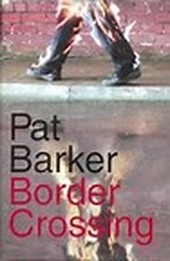 Imagine you’re out for a walk one weekend and see a young man swallow handful of pills and jump into the river. Without thinking – or perhaps even as a distraction from the torment of your failing marriage – you strip off your heavy coat and plunge into the river to save him. Much later, after the ambulance has driven him away and you’ve sloughed off the river’s mud in a hot bath, you realise you’ve got the young man’s coat and, more to the point, he’s got yours, with a set of spare house keys in the pocket, along with a bunch of letters bearing your name and address. So you hot-foot it to the hospital to do a swap. |
entertaining fiction about identity, mental health and social justice
Annecdotal is where real life brushes up against the fictional.
Annecdotist is the blogging persona of Anne Goodwin:
reader, writer, slug-slayer, tramper of moors, recovering psychologist, struggling soprano, author of three fiction books. LATEST POSTS HERE
I don't post to a schedule, but average around ten reviews a month (see here for an alphabetical list), some linked to a weekly flash fiction, plus posts on my WIPs and published books. Your comments are welcome any time any where. Get new posts direct to your inbox ...
or click here …
Popular posts
Categories/Tags
All
Archives
March 2024
BLOGGING COMMUNITIES
|





















 RSS Feed
RSS Feed





















